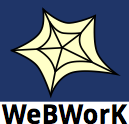Section 1.6 Multiple Choice
While free-response questions are generally preferred, sometimes the nature of a question lends itself to multiple choice.
Note also that the solution to this problem uses an external link.
The number \(\sqrt{2}\)
- is
- is not
rational.
Checkpoint 1.6.2. Choose one.
Which of the following suggest that differentiation and integration are inverse processes?
- The Quadratic Formula
- The Fundamental Theorem of Calculus
- The Fundamental Theorem of Arithmetic
- None of these
Checkpoint 1.6.3. Choose a Subset of Options.
Select all expressions that are equivalent to \(e^{x^2 + 1/x}\text{.}\) There may be more than one correct answer.
- \(\displaystyle e^{x^2} + e^{1/x}\)
- \(\displaystyle e^{ (x^3+1) / x}\)
- \(\displaystyle \dfrac{ e^{x^2} }{ e^x }\)
- \(\displaystyle e^{x^2} e^{1/x}\)
- \(\displaystyle e^{x^2} e^{x^{-1}}\)
- None of the above
Checkpoint 1.6.4. Choose a Subset of Options with Automated Labeling.
Select all expressions that are equivalent to \(e^{x^2 + 1/x}\text{.}\) There may be more than one correct answer.
- \(\displaystyle e^{x^2} + e^{1/x}\)
- \(\displaystyle e^{x^2} e^{x^{-1}}\)
- \(\displaystyle e^{x^2} e^{1/x}\)
- \(\displaystyle e^{ (x^3+1) / x}\)
- \(\displaystyle \dfrac{ e^{x^2} }{ e^x }\)
- None of the above
Checkpoint 1.6.5. Choose a Subset of Options with Explicit Labeling.
Select all expressions that are equivalent to \(e^{x^2 + 1/x}\text{.}\) There may be more than one correct answer.
- \(\displaystyle e^{x^2} e^{1/x}\)
- \(\displaystyle e^{x^2} + e^{1/x}\)
- \(\displaystyle \dfrac{ e^{x^2} }{ e^x }\)
- \(\displaystyle e^{ (x^3+1) / x}\)
- \(\displaystyle e^{x^2} e^{x^{-1}}\)
- None of the above

